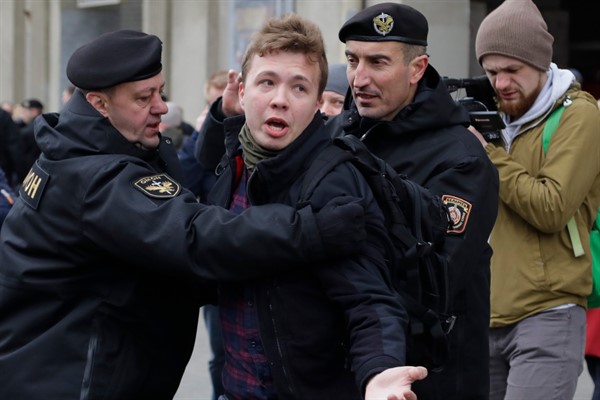When a Belarusian MiG-29 fighter jet forced a Ryanair flight filled with civilians to divert from its Athens-to-Vilnius route and land in Minsk on Sunday so that the regime could arrest one of its leading critics, it justifiably triggered international outrage. It was, indeed, a brazen violation of international norms. But this new transgression by the Belarusian dictator, President Alexander Lukashenko, was not an isolated event. It was part of an increasingly common practice by repressive regimes across the globe, one so common that it now has a name: transnational repression.
Lukashenko personally ordered the military aircraft to scramble into action, claiming there might be a bomb aboard the Ryanair flight. But the real target of the operation was Roman Protasevich, a journalist and activist who, like many prominent figures in the Belarusian pro-democracy movement, have sought refuge abroad. Like others, Protasevich thought he would move beyond Lukashenko’s grasp if he went into exile. But like scores of exiled critics of a wide variety of repressive regimes have discovered in recent years, tyrants who brook no dissent at home are feeling increasingly comfortable pursuing their critics abroad.
A key difference in the Ryanair case is that it wasn’t covert, and Lukashenko didn’t even bother to cover his tracks. Instead of a secret, undercover mission, he openly used a military plane, the country’s civilian air traffic control system and a transparently bogus ruse to trample over civilian aviation rules.

